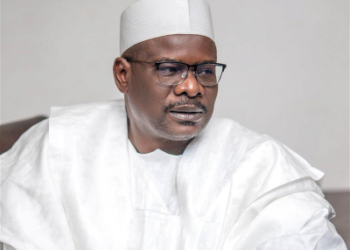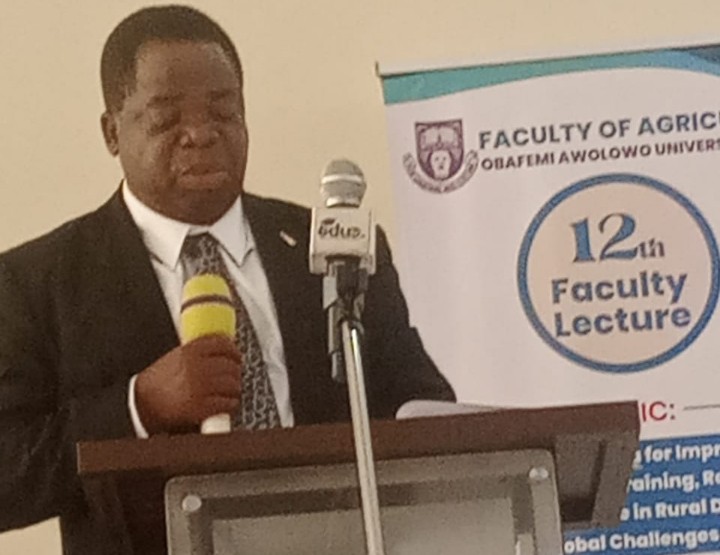Chairman/Chief Executive of the National Drug Law Enforcement Agency, NDLEA, Brig. Gen. Mohamed Buba Marwa (Retd) has revealed that a total of 17, 647 drug offenders and 10 barons were arrested in the past 17 months.
This was as he disclosed that over 2,369 convicted and jailed while more than 11,000 drug users were counselled and treated within the same period.
Marwa made the disclosure at a press briefing in Abuja, today, to kickstart activities to mark this year’s UN day against drug abuse and illicit drug trafficking.
As contained in a press release by Director, Media and Advocacy NDLEA Headquarters, Abuja, Femi Babafemi, the NDLEA boss spoke on the theme, “Addressing Drug Challenges in Health and Humanitarian Crises.”
Marwa said: “For us at the agency, we are abreast of time and trends as shown by the priority accorded treatment and care. In 2021, about 8,000 drug users were counselled and rehabilitated, in most cases through brief interventions.
“We continued the effort in the first five months of 2022, whereby an additional 3,523 were also counselled and treated in NDLEA facilities.”
“Simultaneously, we have continued to shut the tap of illicit flow of drugs with the arrest of over 17,647 offenders including 10 drug barons between January 2021 and May 2022; more than 2,369 convicted and jailed within the same period while 154,667.339kg drugs have been seized in the first five months of this year alone.”
The NDLEA boss said changing dynamics have forced a paradigm shift that encompasses a balanced approach to tackling the drug problem in the country.
“That has brought to the fore the imperative of looking at the drug problem through the lens of public health and also tackling such as a broader social problem, rather than through the conventional, narrow, criminal matter approach.
“It has, therefore, also become prudent to initiate mechanisms and measures that are proactively extenuating.
“In our case, the National Drug Control Master Plan (NDCMP) 2021-2025, launched last November, has incorporated components that tend to the health concerns of drug abuse.
“Some of the activities lined up for this week are reflective of the realignments in our approach to the illicit substance problem,” he stated.
Marwa said the Drug Demand Reduction Department of NDLEA has been galvanised and working non-stop to ensure that the health aspect of the drug abuse calculus is getting adequate attention.
He also disclosed that a number of other measures are being taken to strengthen the process.
He said: “The agency’s policy of Drug Integrity Test is predicated on getting help to drug users suffering in silence because they cannot seek the needed health treatment due to social stigma and discrimination.
“This is why, in a short while from now, we’ll be unveiling the NDLEA Call Centre that will be manned by professionals and experts in counselling, psychotherapy, psychology, psychiatry and more to offer help to drug users who will make use of our toll-free lines to seek counselling 24/7.
“This will also enable those afraid of stigmitisation to be able to seek help without necessarily being seen or identified by anyone.
“Even as we rev up our drug supply reduction offensive, it is certain that we are not relenting on getting help to those suffering from drug use disorder.
“The forthcoming sensitization training on Drug Prevention, Treatment and Care (DPTC) for Governors’ Wives will bolster the effort to ensure that the consequences of drug abuse are nipped in the bud and prevented from snowballing into a public health problem that would overwhelm our society in the long run.
“This year’s theme will go a long way in directing our attention to an area that requires collective effort to stave off future catastrophes.”
Marwa appreciated President Muhammadu Buhari for the support so far given to the agency to fulfill its mandate.
He also recognised immense contributions from international partners, such as EU, UNODC and other stakeholders, in the fight against the drug menace.
In his remarks, Country Representative of UNODC, Mr. Oliver Stolpe, urged governments at all levels in Nigeria, candidates for political offices and international partners not to lose sight of the public health crisis caused by drug use in the country.
“Based on the 2017/2018 data, we estimated that close to 6 million persons in Nigeria could be living with a drug use dependency. This creates a massive public health challenge.
Our key policy asks on this World Drug Day to the federal and state governments, to the international development partners as well as to the candidates for political office is not to lose sight of the public health crisis caused by drug use.
“What is being invested right now is nowhere near sufficient to cater for the needs of millions of persons living with a drug use dependency.
“[It is] even less so to mount drug use prevention programmes reaching both children in and out of school and providing them and their families with the knowledge and skills to avoid engaging in dangerous drug use and developing drug use disorders,” Stolpe.


































